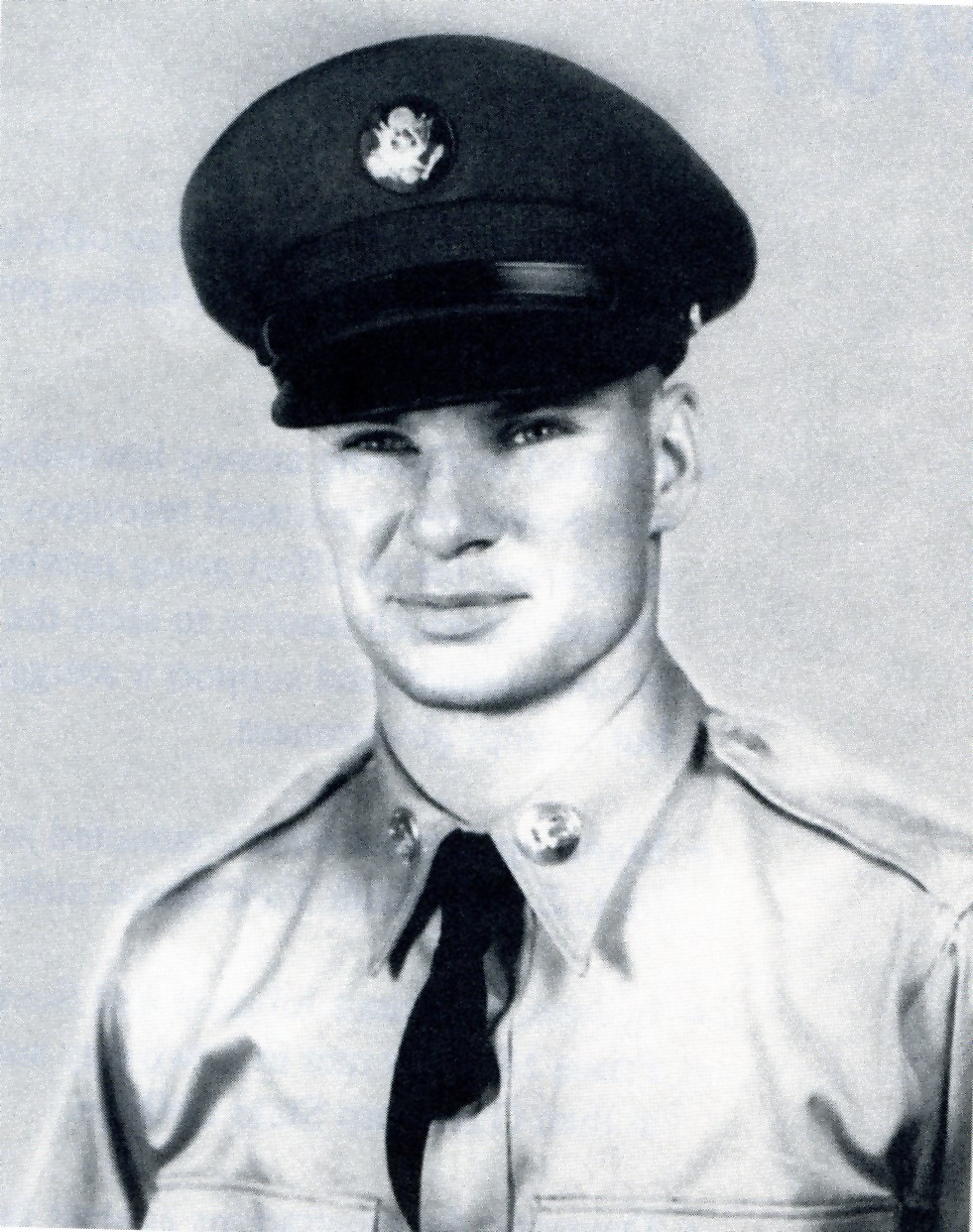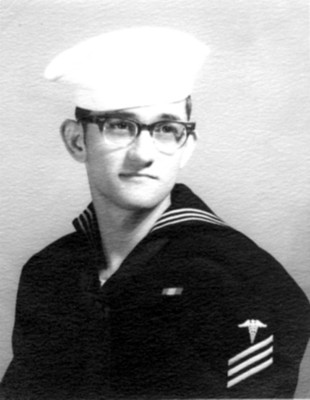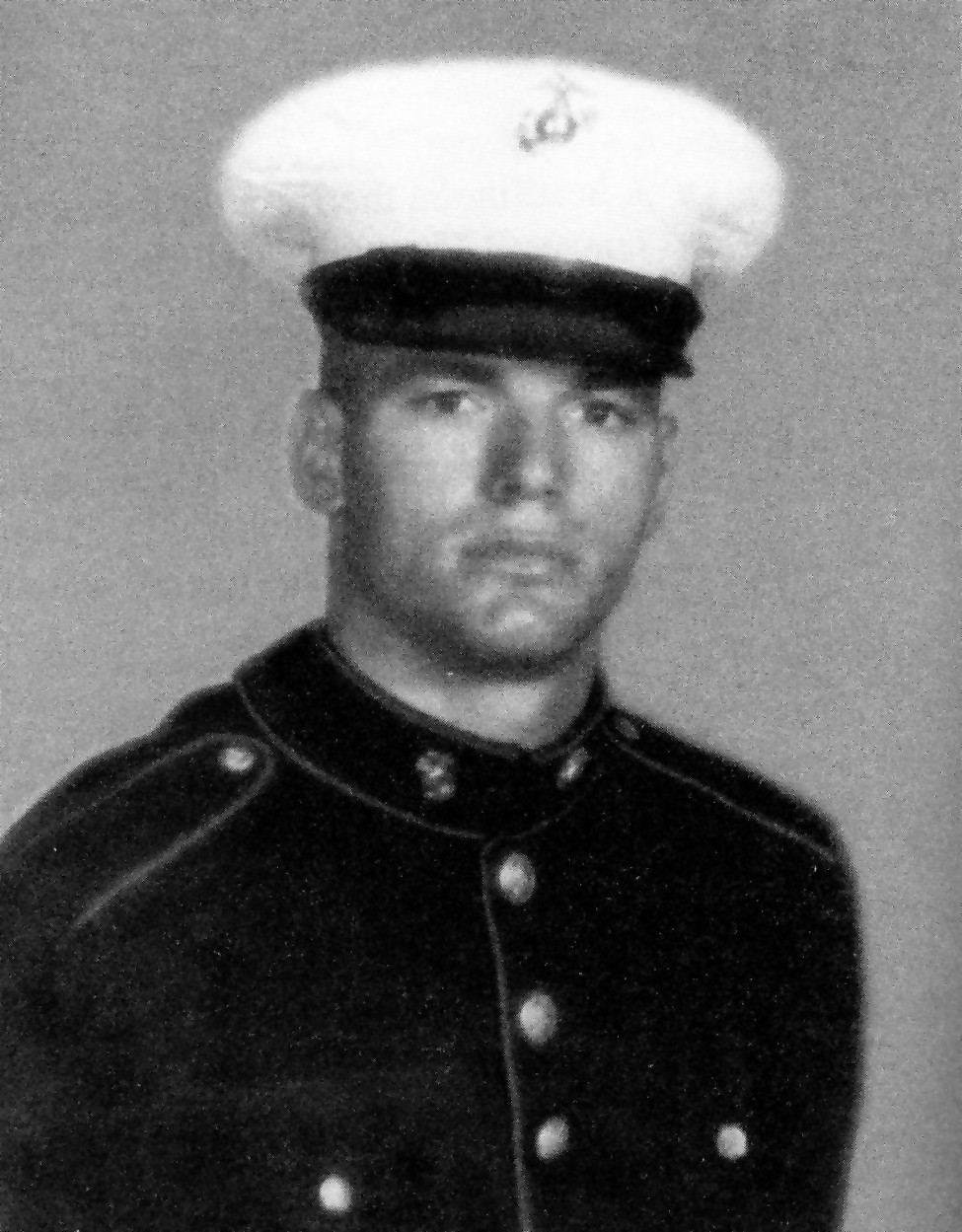
JAMES E FORSMAN - SP4
- HOMETOWN:
- mantua
- COUNTY:
- Gloucester
- DATE OF BIRTH:
- January 17, 1940
- DATE OF CASUALTY:
- February 03, 1967
- BRANCH OF SERVICE:
- Army
- RANK:
- SP4
- STATUS:
- KIA
- COUNTRY:
- South Vietnam
Biography
James Eskel Forsman was born on January 17, 1940. His home of record is Mantua, NJ.
He served in the US Army and attained the rank of Specialist 4 (SP4).
Forsman was killed in action on February 3, 1967. He is buried in Eglington Cemetery in Gloucester County, NJ.
Jimmy
January 17, 1940-February 3, 1967
SP4, Army Mantua, NJ
"He was the kind of guy who would do anything you asked him," his father says. "He would put his mind to it and get it done." Svenning 'Swan' Forsman is proud of the discipline and determination he instilled in his son. But the tears come more quickly than they used to. "Anymore, it doesn't take much to set me off, but he was the only son I had."
Swan and Ruth Forsman raised two children in Mantua, NJ, after World War II, in which Swan fought the Japanese. "That war was for our way of life," he says. "Not like it was in Vietnam. They just sent those boys off to die."
Betty Cotton, of West Deptford, NJ, remembers her big brother being very protective and sometimes, very helpful. "I don't think we were close until we got older," she recalls. "There were seven years between us. But we began to appreciate each other more once I was a teenager. When I was sixteen and Jimmy was home on leave, he'd give me money and cover for me while I went to see my boyfriend, without my parents knowledge, of course. He really knew how to take care of me."
John Forsman ran the Texaco service station in Wenonah for 30 years. Jimmy, his nephew, pumped gas there first, and then gradually learned to be a mechanic.
"Jimmy loved cars, John now says. "He learned well, but not fast. He was real concerned about screwing something up and was awkward at first. He wasn't very confident and always felt inadequate. But he loved it and took great pride in his work. He was a good kid."
Jimmy sometimes had a quick temper. Betty recalls, "If things didn't go right, he'd think nothing of throwing or kicking anything within reach."
"He was a very quiet boy until he got mad," Swan says. "I came home from work one night and he's jumping up and down on a bicycle that he was supposed to be fixing. He couldn't get the back wheel off and the rest of the bike paid the price."
Jimmy lived at home after graduating from Pitman High School in 1958. He worked at a tire dealer and then for an electroplating firm. But his passion was anything automotive. The family remembers the 'Gray Goose'.
"Jimmy swore me to secrecy," Betty says. "He saved up ninety dollars and then rode his bike to this car dealer who had sold him on a big, old Cadillac convertible. I couldn't wait for him to get home with it."
"It was probably Jimmy's most serious transgression," his uncle says. "He did it without Swanny's okay and Ruth didn't know a thing about it either. It was some car."
"I understood later that he was trying to assert some independence," his father says. "But when he brought that awful thing home, the first thing I asked him was if he wanted to go out to the back yard with me and decide who was going to run this household."
Betty remembers the trouble Jimmy got into, but also fondly recalls the car. "It was huge," she says. Her eyes light up as the next memory flashes. "The cat laid down on the roof one day and the material was so rotted that it fell right through. I thought it was the funniest thing I had ever seen."
"You had to hold the wires together to get it started," Swan says. "I couldn't believe it. But he was sure he could fix everything and eventually he did."
Jimmy dated several girls through high school and thereafter, but nothing serious developed until a family Memorial Day picnic in 1962. Jimmy came with a girl, but when he was introduced to Edith Hay, it was almost magical.
"They hit it off when they met and that was it," says Betty. "Jimmy really liked Edith. I don't think he ever thought about anyone else after that picnic."
"I had to tease him into asking her out again," his Uncle John says. "He was really shy, but finally found the courage. He was glad he did."
Edith was raised in Woodbury and graduated from Woodbury High in 1961. "We were engaged on Valentine's Day of 1963," Edith remembers. "I knew right away that he was something special and could tell he felt the same way about me."
Jimmy and Edith planned a September wedding. But the U.S. government had other ideas, and in August, Jimmy was drafted. He was trained as a combat infantryman at Fort Dix, NJ. The couple hastily made a new date, and they were married when Jimmy was on a weekend pass in November. Upon completion of his training, Jimmy was assigned to the infantry in Germany and left in December, leaving his bride in Woodbury with her family.
After a few months, Jimmy found an off-post apartment and with the money they had saved, Edith was able to join him. In 1963, an Army private's pay was less than two-hundred dollars a month so money was tight.
"We struggled but it was worth it," Edith says. "We had a ball in Germany. I could've stayed there forever. The main part of our marriage was spent there. We sure didn't have much time before or after. It was just there."
The Army was good for Jimmy. He handled the discipline well and found a confidence he never had before. "I noticed a big difference," his Uncle John recalls. "He came home on leave one time and I was amazed. He was secure in himself and he was very proud to be in the Army."
His father also remembers Jimmy's pride. "He loved the Army and was very proud of his uniform," Swan says. "My wife and I raised him here but he grew up in the Army."
"Jimmy started out real shy in whatever he did," Edith adds. "But he really came into in his own in the service. He realized he could do many things and one of them was raise a family."
Much happened in the almost eighteen months they were in Germany. Given the opportunity to work as a mechanic in his unit's motor pool, Jimmy jumped at the chance. He decided to make the Army a career, and re-enlisted for six years when his two-year obligation was complete.
"We decided it was best for us," Edith says. "We really liked the travel, and they said that promotions would come fast, once he had some time in."
But most important to them both was the birth of James Eskel Forsman, Jr. on August 19, 1965. "Jimmy was so proud to be a father," Edith says. "He would rush home every day to see us. The three of us spent a lot of time together. As it turned out, it was about the only time we had."
When Jimmy's tour in Germany ended in March of 1966, he was assigned to Fort Carson, Colorado. Again, he left his family in New Jersey until he could find housing. He had recently been promoted but still had to find a furnished apartment and provide transportation for his family. It was about a month before they could join him. Swan and Ruth drove their daughter-in-law and baby grandson from New Jersey to Colorado.
"Thank God Jimmy's parents were going to stay for awhile to help us get settled," recalls Edith. "We were there only a week when Jimmy got orders to report to Fort Meade, Maryland. It was crazy. We just had to pack up and leave. Jimmy flew to Fort Meade and the four of us drove back to Jersey."
In the spring of 1966, the war in Vietnam was escalating almost daily. The type of warfare and terrain encountered by the Americans dictated the need for an extremely mobile and mechanized force. The 11th Armored Cavalry (The Blackhorse Regiment) was reorganized and refitted to help meet that need in May. The unit now required many more mechanics for its trucks, tanks, armored personnel carriers and self-propelled cannons. It did not matter to the Army that the Forsmans were just getting to their new assignment.
The 'needs of the service' always came first. Jimmy was a qualified mechanic as well as a trained infantryman. He was transferred to the regiment as it was completing the training required before deployment to Vietnam.
"We didn't know why he was going to Fort Meade at first," says Edith. "But he found out as soon as he got there. He would come home on weekends from May until August. He left for Vietnam on his son's first birthday."
Edith first moved in with her grandmother in Woodbury but then found an apartment in Westville. "I thought we should have our own place with more room," she says. "And especially, since I was pregnant again. I was pretty sure about it before he left but I didn't want Jim to worry about me until I was positive."
When the "Blackhorses" arrived in Vietnam, they were initially used as a mobile-shock support force that secured roads and operated in the Bien Hoa and Long Binh areas just north of Saigon. Jimmy was a member of Headquarters Troop, 1st Squadron, 11th Armored Cavalry. His Army Commendation Medal citation describes his duties and how he attended to them.
During the period of re-equipping, the task of maintaining the vehicles was monumental. Specialist Forsman worked tirelessly for many hours to insure that his unit would move on schedule. On many occasions, his supervisors noted his outstanding efficiency and peerless devotion to duty. Upon arrival in Vietnam, there loomed the task of drawing still more equipment. Specialist Forsman accepted his responsibilities eagerly and with an understanding and devotion far beyond his years. Always contributing more of himself than was required, his outstanding performance of duty is in keeping with the highest traditions of the military service and reflects great credit upon himself, his unit, and the United States Army.
Not much is known about the reason Jimmy was riding in a vehicle along a road near the base at Long Binh on the morning of February 3, 1967. It could have been a routine supply trip. It may have been an emergency repair that could have taken him onto less traveled roads. The official Statement of Casualty reads: "Died in Vietnam as the result of burns received while a passenger in a military vehicle which struck a hostile mine." The driver and another passenger were also killed.
The first telegram Edith received listed his injuries and stated that he was in serious condition. "None of them seemed life threatening at all," she says. "I was making plans of how to take care of him when he got home."
Two days later, Edith took young Jimmy to the doctor's office for treatment of an infection. The doctor received a phone call from Edith's grandmother just before she arrived. The message was that two officers were on their way to his office to inform Edith that Jimmy had died. The doctor had Edith wait in the back room, ostensibly to see if there would be a reaction to the shot that he just administered to the baby.
After a few minutes, it was not the doctor who entered the room. "I had no idea why this soldier was coming up to me," she recalls. "If it had been at home and I had seen the car, I would have known. It was really hard. It was a good thing that I was at the doctor's."
After delivering the bad news and getting the doctor's approval, the notification officers drove Edith and Jimmy to the Forsmans. The whole family was devastated but their strength and love for each other carried them through.
Jim's sister, Betty, had married and was also pregnant. "I remember my parents being more concerned with me than I was. I was due any day," she says. "I didn't know what to do. I had never lost a brother before. If Mom and Dad hadn't been so strong, I don't know what would have happened."
Edith remembers the time as a search for good. "Ruth and Swan were great to me but everyone wanted to protect me," she says. "And I'm not the type that needs protection. I had to think about the good things I had left. Like Jimmy Jr. and then three months later, Jeffrey."
It is a tremendous comfort to the whole family that Jimmy believed in what he was doing. Edith says, "In his heart, he was doing the right thing and that's important. In his letters, he would write that he would feel bad for all those people and the kids. He knew why he was there."
Three years after Jimmy's death, Edith met Gary Sagirs. She had spent all her time being a mother. "I didn't do much for a couple of years," she says. "It was all I could do to keep up with the two boys. But I also knew that I had to move on with the rest of my life."
Gary is a Vietnam-era veteran who fell in love with Edith and her two boys. They were married after dealing with some tough issues. "We both realized that Gary could not compete with a ghost," Edith says.
"It would not have been fair to anyone to compare Jimmy and myself," Gary adds. "I had a job to do and that was to help Edith raise those two boys."
Edith and Gary had two more sons together, Brian and Donald, and now live in Washington Township. They are still close to Swanny. He and Ruth immediately accepted Gary with open arms and hearts. "All four of them call me 'Grandpop'," Swan says. "That's about the best legacy my son could have left for me."
"Jimmy wanted to be an uncle," Betty recalls. "He was happy to be a father and would have been a great uncle."
Betty's daughter, Mary, wrote a poem about Jimmy that reads in part:
The uncle we never knew
was very thin with eyes of blue.
And traveled off on lots of trips
on trains and planes and ocean ships.
And he took us, too.
Until he was ill.
And though they say
the doctors tried,
he was too sick.
And so he died.
The uncle we never knew.
Jim, Jr. and Jeff will always love Gary as their 'Dad' and both know that their father would thank Gary for being there for them and Edith. And the ties to Jimmy are strong.
"People say I look like him, talk like him and even act like him," Jim, Jr. now says. "We both hope to make our Dad and our father proud."
Edith wants James Eskel Forsman to be remembered as a good father and a good husband. "All he ever wanted was a little niche in life and to be happy," she says. "He loved and protected his family, and his sister was the apple of his eye. He never asked for much." She then glances and winks at her first two sons. "And he would have loved these guys."
Excerpt from They Were Ours: Gloucester County's Loss in Vietnam
by John Campbell
Used with permission of author
Sources: John Campbell, various websites and NJVVMF.
Remembrances
Be the first to add a remembrance for JAMES E FORSMAN
Help preserve the legacy of this hero, learn about The Education Center.
LEARN MORE

